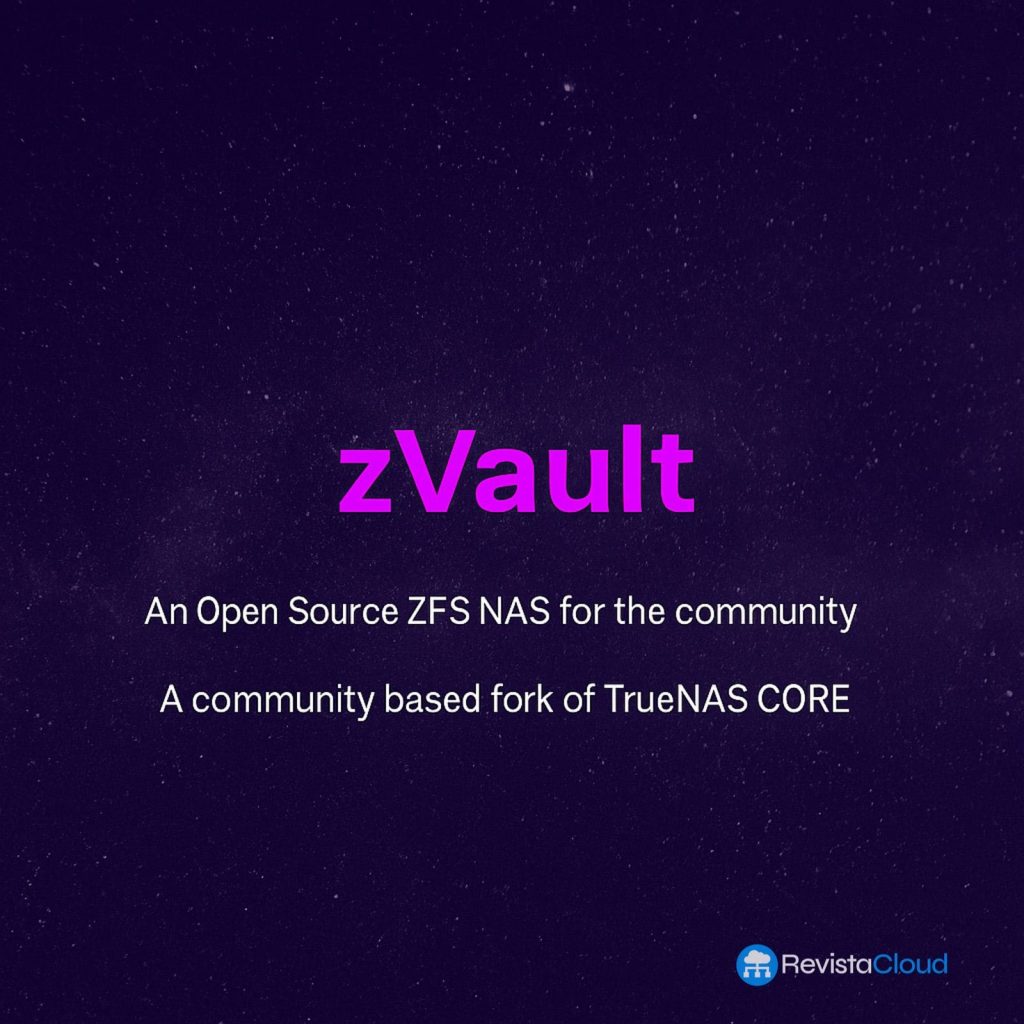As iXsystems pivots toward Linux-based TrueNAS SCALE, a new contender emerges—zVault, a fully open-source FreeBSD-based NAS operating system that puts control back in the hands of advanced users.
Over the past decade, iXsystems has become synonymous with innovation in network-attached storage (NAS), particularly through its TrueNAS product line. However, the company’s recent shift toward TrueNAS SCALE—built on Debian Linux and focused on hyperconverged infrastructure—has left long-time FreeBSD loyalists without a clear path forward. For them, zVault is not only a technical alternative, but a philosophical one.
From TrueNAS CORE to zVault
While iXsystems still maintains TrueNAS CORE (its FreeBSD-based NAS OS) in maintenance mode, all new development efforts have shifted to SCALE. That transition has not been universally welcomed, especially by users who favor the BSD architecture for its simplicity, robustness, and design elegance.
zVault enters the scene as a fresh fork of the last FreeBSD version of TrueNAS CORE, specifically FreeBSD 13.3. Its developers have removed any proprietary components and license entanglements, offering a truly open-source NAS OS free from enterprise licensing constraints.
No Telemetry. No Tracking. No Nonsense.
zVault sets itself apart with a strict open-source and privacy-first philosophy. The system has:
- No telemetry
- No tracking
- No user registration
- No proprietary binaries
- No commercial licensing agreement
As its website proclaims:
“We believe FreeBSD is perfect for a NAS. We do not believe that hyperconvergence is the solution for everyone.”
This is a system built by and for users who want their storage OS to do just one thing—and do it well.
The Road to Freedom Wasn’t Easy
zVault’s debut was not without challenges. The first preview release in early 2025 was pulled after iXsystems filed a complaint alleging that it contained proprietary assets. In response, the developers removed any remaining licensed code and re-released a cleaned-up version with fully open-source components only.
Prominent BSD blogger Vermaden voiced what many in the community were feeling: “TrueNAS CORE is dead—Long Live zVault.” In his blog post, he documented the over 50 files in the original release that referenced the TrueNAS Enterprise License Agreement, now entirely removed.
Roadmap: Practical and Purposeful
zVault’s public roadmap is concise and focused:
- Bootable and functional system ✅
- Stable release
- Update to FreeBSD 13.5
- Long-term migration to FreeBSD 14.x
The aim is not to compete with Kubernetes-enabled, container-first platforms like SCALE. Instead, zVault remains focused on being a modern, rock-solid NAS for those who prefer simplicity and control.
zVault vs SCALE vs XigmaNAS
| Feature | zVault | TrueNAS SCALE | XigmaNAS |
|---|---|---|---|
| Base System | FreeBSD 13.3 | Debian Linux | FreeBSD 11/12 |
| License | 100% open-source | Dual (FOSS + Enterprise) | Free, no telemetry |
| Docker/Kubernetes Support | No | Yes | No |
| Focus | Pure storage | Hyperconverged infrastructure | Traditional NAS |
| Web Interface | Modern (inherited from CORE) | Modern | Outdated but functional |
| Community | Growing | Active, commercial backing | Smaller but stable |
For users uninterested in containers, orchestration, or virtualization—zVault is refreshingly lean.
For Builders: Still Possible to Compile TrueNAS CORE
Advanced users can still compile TrueNAS 13 CORE from source, as long as they have a FreeBSD 13.x build environment. The process involves cloning the official build repo, installing dependencies, and using standard make commands such as:
make checkout
make update
make releaseBut with zVault’s clean ISO images and removal of licensing roadblocks, that effort may no longer be necessary.
Conclusion: A Return to Simplicity and Control
As hyperconverged infrastructure becomes the norm, and vendors pursue enterprise integration and container-first platforms, zVault carves a path in the opposite direction. For those who value clarity over complexity and open governance over commercial agendas, zVault is more than a fork—it’s a movement.
And for the FreeBSD community, it’s proof that TrueNAS CORE may be gone—but its spirit lives on.

